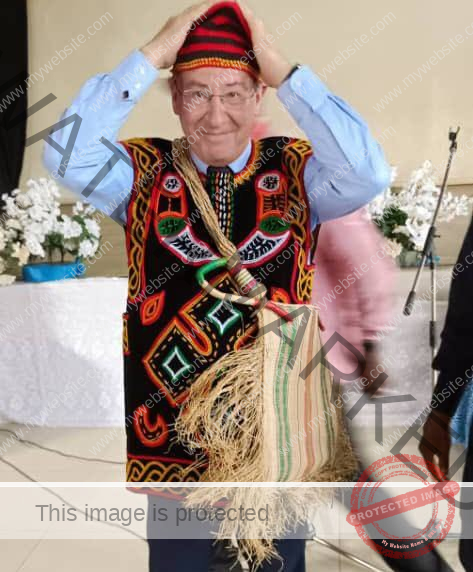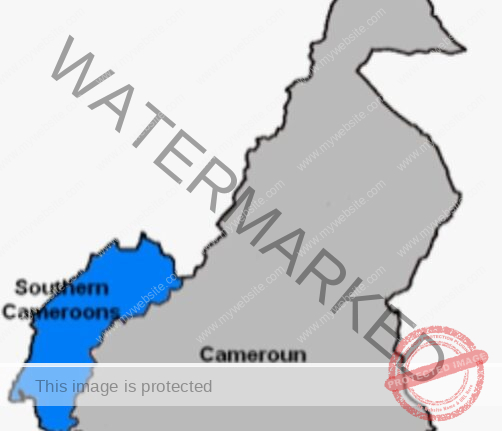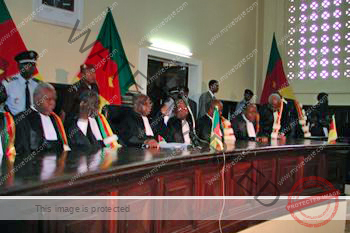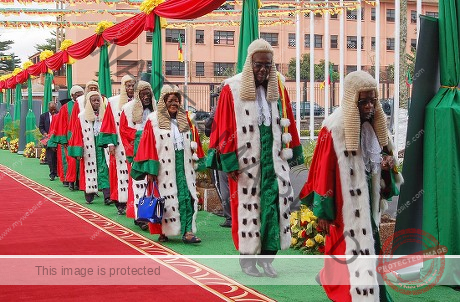French Ambassador in Northwest Costume: Symbolism or strategy?
In recent months, the people of Ambazonia have observed with growing curiosity—and a touch ofaution—the French Ambassador’s public appearances in the traditional attire of the North West Region. Clad in raffia regalia, including ceremonial hunting bag, the ambassador’s visual embrace of local culture has raised both eyebrows and important questions.
To those unfamiliar with the context, such gestures may seem like standard expressions of cultural appreciation. After all, diplomacy often involves symbolic engagement, and wearing local dress is one way of showing respect for a host community. The British Ambassador, for instance, has done so in the past—an act generally viewed within the context of Britain’s historical role as the administering power of the former UN Trust Territory of Southern Cameroons.
However, the French case is markedly different, both in history and substance. France was never the administering authority in this territory. Its influence here has largely been felt through indirect means—primarily via its enduring alliance with successive administrations in Yaoundé, many of which Ambazonians believe have been central to the ongoing conflict. Against this backdrop, the sudden cultural enthusiasm displayed by a French diplomat invites deeper reflection.
Is this renewed outreach part of a sincere effort at reconciliation? Or is it more strategic—perhaps an attempt to rebrand, reconnect, and regain influence in a region where its credibility has waned?
What adds to the curiosity is the selective nature of this cultural diplomacy. The French Ambassador has not been observed donning traditional attire in the Ouest Region, nor in the Beti-Bulu heartland, often associated with the Essingan cult fraternity, nor in the Grand North. This symbolic gesture appears reserved for Bamenda—the intellectual and symbolic capital of Ambazonian resistance. Why here, and only here?
Ambazonians are a warm and hospitable people. We welcome strangers and treat guests with dignity. But experience has taught us that hospitality must be matched by integrity. Diplomacy divorced from substance can quickly become strategic theatre—a distraction from the underlying power dynamics that shape real outcomes.
France’s broader strategy toward Africa at the turn of the 21st century—focused more on cultivating relationships with individuals rather than building institutional partnerships—now appears to have backfired. That reliance on personalities over national institutions has left Paris ill-prepared for the wave of citizen-led movements and sovereign awakenings sweeping the continent.
Worse still, the assumption behind many of these diplomatic maneuvers is that Africans remain fragmented, unable to reflect or act collectively. For decades, this fallacy was convenient. But providence—and technology—have rewritten the script. Social media, citizen journalism, and pan-African think tanks are now providing the very forums that were once absent. The new generation is watching, documenting, analysing—and organizing. They are committed to ensuring that their children are not condemned to a cycle of humiliation, dependence, or externally imposed stagnation.
The tides are shifting. The era of top-down control and post-colonial condescension is ending. What France and others must come to terms with is this: the direction of global migration, economic potential, and cultural leadership is gradually turning southward. Those who built their prosperity by extracting from the Global South must now contend with the consequences of that history. What cannot be rebuilt honestly will not be rebuilt at all.
Nor have Ambazonians forgotten the darker pages of the past. From the alleged French role in silencing African voices like Thomas Sankara, to the threats reported in Bamenda during the 1980s when communities resisted foreign-imposed leadership—those memories remain alive. Coupled with today’s silence in the face of mass displacement, injustice, and repression, the gap between symbolic gestures and moral clarity is stark.
That said, fairness demands that we acknowledge the possibility of sincere intention. If the French Ambassador’s actions are meant to open dialogue, listen to grievances, and support a process of justice and repair, then that effort should not be dismissed. But gestures must be matched with accountability. Otherwise, they are nothing more than soft power tactics wrapped in raffia.
Ambazonians no longer rely on intermediaries to tell their story. They do not need validation from distant capitals. What they seek is justice, dignity, and sovereignty. And while they may welcome partners, they will not welcome puppeteers.
Let this moment be a turning point—not for photo opportunities, but for the courageous rethinking of relationships built on asymmetry. The future demands mutual respect, honest dialogue, and historical reckoning.
That is the only path forward.
The Independentist, Bamenda Bureau





















Leave feedback about this